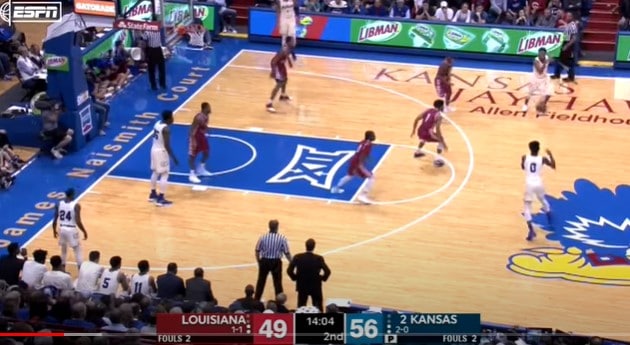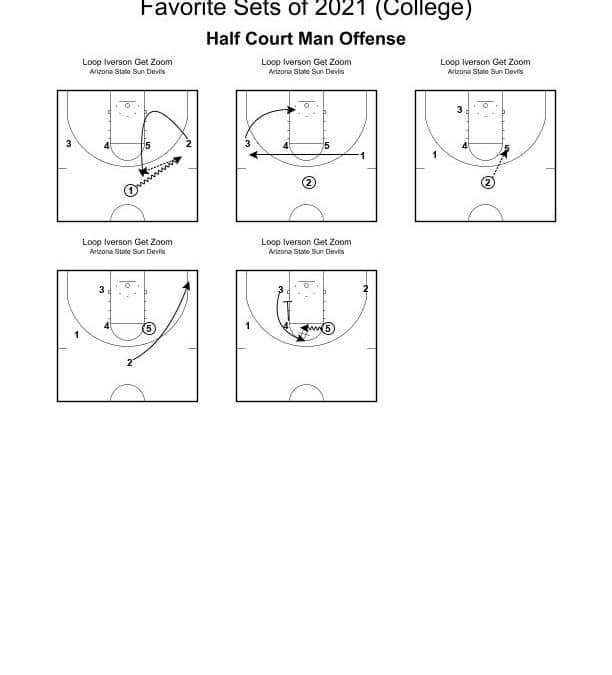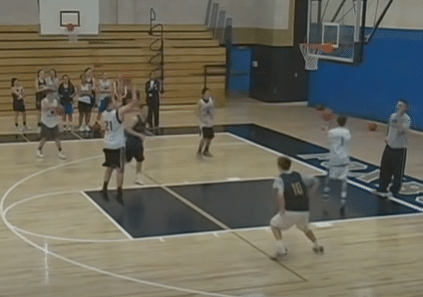What is the right level of coaching for you? What do you think?

The glamorous side of basketball coaching (i.e. NBA head coaching jobs, high Division I, etc.) tends to cloud a great deal of actual coaching ability happening at the lower levels of the sport. I firmly believe that someone who is capable of doing excellent work with a 5th-grade team would be suited to work at a lot of different levels in basketball coaching. Whereas plenty of “high-level” coaches might not be able to even coach that 5th-grade team successfully. While there are distinct differences in the technical ability between the Riverside Elementary School Tigers and the Golden State Warriors, the fundamental processes for developing basketball players remain the same across the board. We as coaches owe it to ourselves and our players to find the right level of basketball that suits our interests, not only force ourselves to seek out higher and higher level jobs out of ego.
Coaches who work below the high school level need more patience and less concern with outcomes than their coaching counterparts who work with older athletes. These two skills are not innate and they, do not occur in everybody. I believe that it is a specialization that deserves the utmost in respect because of the unique skillset required. Most wildly successful athletes will tell you that their earliest coaches were people who were encouraging, had a strong understanding of the fundamentals of the sport, Ωzcand genuinely cared about them as people. That is the kind of solid foundation required to build successful athletes moving forward.
At the high school level, varsity coaches do need to be concerned about wins and losses, but freshman and JV coaches should still be primarily focused on player development, culture building, and character. A great freshman coach might not make a great varsity coach, and vice versa because the job of the freshman coach is so distinct from the older group. The best high school varsity coaches I’ve seen have a close working relationship with their younger level coaches, not ruling over their practices with an iron fist, but rather setting the expectations for the program and letting those parameters trickle down naturally into the younger levels. This provides structure to the younger level coaches, without impinging on their creativity or autonomy. A head varsity coach will only be as strong as his pipeline of talent, and building better players at the lower levels will only increase the varsity’s chances of winning.
College coaching is a different animal altogether. A primary focus of this level for assistant coaches is recruiting talent, and this skill is crucial for assistant coaches who wish to survive. However, it has very little to do with actually coaching basketball better, and oftentimes good college assistants do not make good head coaches – at the college, or any level. They spend the vast majority of their time chasing talent and less time developing their ability to teach. Of course, there are exceptions, but there is no direct correlation between being a good recruiter and being an excellent teacher of the game. I caution any coach, no matter how ambitious, that the road to college coaching is long, frequently unpleasant, and often extremely unsatisfying depending on what head coach you work for.
Finding a satisfying level to coach at really depends on personal temperament. If you want to be in charge of the learning, I highly recommend starting at lower levels and intensely studying teaching methods, rather than focusing on tactics or recruiting. Coaches who wish to start at a higher level must understand the pitfalls of working at those levels.
Click on the pdf link to download the Finding the Right Level Via Trial and Error Article:




0 Comments